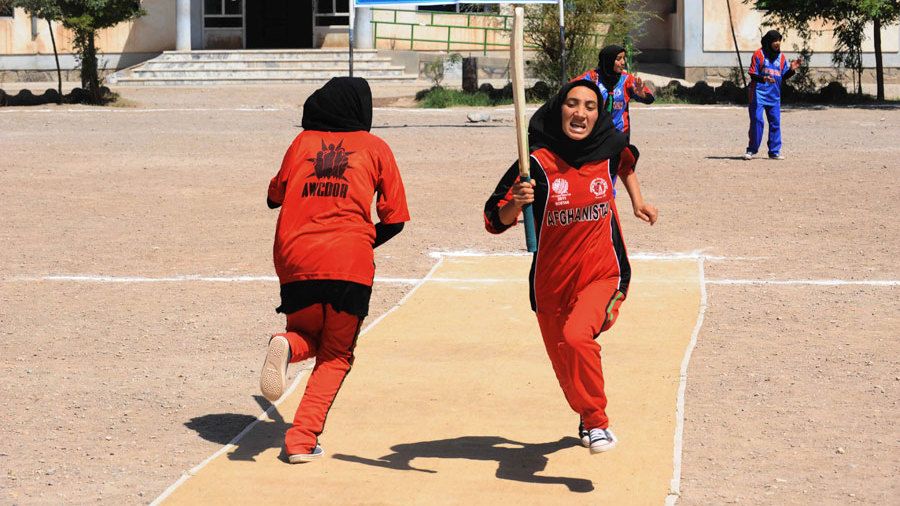


The team has demanded to be administered by East Asian Cricket office in Australia, and not play under ACB banner or be called the Afghan national team
Firdose Moonda
Seventeen female players, contracted by the Afghanistan Cricket Board (ACB) in 2020 before the Taliban takeover, have asked the ICC to assist them in setting up a refugee team based in Australia in the absence of a national side. The players made their request in a letter sent to ICC Chair Greg Barclay on Saturday, pleading for “support and guidance” from the game’s governing body to formalise themselves, even as the ACB is unable to recognise them.
Crucially, the players acknowledged that “due to the government policies of Afghanistan, the Afghanistan Cricket Board and thus the ICC cannot recognise them as a national team of Afghanistan”, and have not demanded to play under an ACB banner or even to be called the Afghan national team. Instead, they have asked to be administered by the East Asian Cricket office based at Cricket Australia as a refugee team which will enable them to “represent all Afghan women who dream of playing cricket but are unable to in Afghanistan”.
Their letter comes against the backdrop of their men’s team’s unprecedented success in reaching the semi-finals of the T20 World Cup, and capturing global attention with their performances. The women’s players expressed their joy at the men’s achievements even as they reflected on their own plight.
“We, the formerly contracted players of the Afghanistan Women’s team, are proud and excited by the achievements of Afghanistan at the ICC Men’s T20 World Cup, and wish to congratulate Rashid Khan and his team on reaching the semi-finals,” the letter read. “A profound sadness remains that we, as women, cannot represent our country like the male cricketers.”
In November 2020, the ACB had held a women’s cricket trial in Kabul, and agreed to contract 25 women’s players, with the aim of developing a slow progression of fixtures. A tour to Oman was being mooted as their first assignment, but it never took place, as nine months later, the Taliban takeover in Afghanistan saw women and girls banned from most areas of public life, including sport.
Many of those involved in sport sought exile abroad, and a significant proportion of Afghanistan’s female footballers and cricketers now live in Australia. There are also some in the UK and Canada. Most of them continue to play cricket at local clubs, and while they have received assistance from various organisations, they have not been able to formalise themselves into a representative team. They have chosen this moment, with Afghan cricket in the headlines, to remind the world of their existence and to propose a solution to their continued exclusion.
“We want to recruit and train girls and women who love cricket to show the world the talent of Afghan women, and to demonstrate the great victories they can achieve if given a chance through the leadership and financial support of the ICC”Excerpt from Afghanistan women’s letter to the ICC
Currently, the ICC is unable to offer them official status, because as a member organisation, it relies on individual boards to compile and recognise teams. The ACB, because of the Taliban’s position on women, cannot recognise a women’s team. There are fears from various quarters that forcing the issue of a women’s team on the Taliban government would put lives at risk.
The exiled players understand the sensitivities, and have asked for recognition in a different way, by being afforded the status of a refugee team. From their communication, it appears that only Afghan refugee cricketers will be included in their proposed set-up.
“Our goals in having a refugee team are to develop and showcase our talent, give hope to the women remaining in Afghanistan, and to draw attention to the challenges women of Afghanistan face,” the letter said. “Like the Afghanistan men’s team, we aim to compete at the highest levels. We want to recruit and train girls and women who love cricket to show the world the talent of Afghan women, and to demonstrate the great victories they can achieve if given a chance through the leadership and financial support of the ICC.”
The ICC have been contacted for comment.
Firdose Moonda is ESPNcricinfo’s correspondent for South Africa and women’s cricket